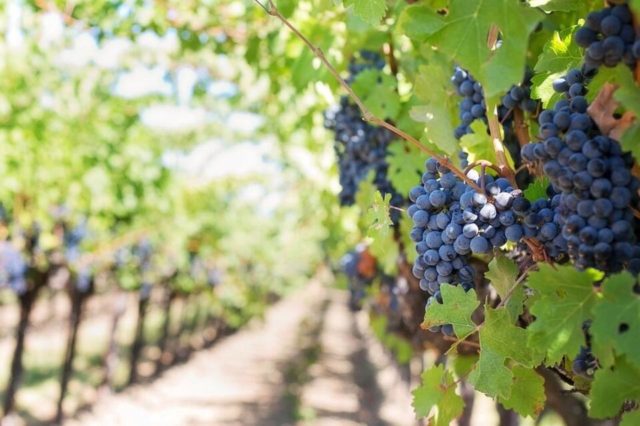’In the wine grape cultivation areas of the Northern Cape, the water supply from the Vaal system appears to have been sufficient until now.’
SOUTH African wine grape producers expect a good but somewhat smaller 2022 crop following a favourable and healthy season.
This is according to the first of four crop estimates issued by viticulturists and producer cellars.
“At this very early stage the wine grape crop is estimated to be smaller than in 2021, but still larger than the five-year industry average,” said Conrad Schutte, manager of Vinpro’s team of viticulturists, who issue the crop estimates with the South African Wine Industry Information & Systems (SAWIS).
“Producers experienced an excellent winter due to sufficient cold, as reflected by regular snowfall on mountain peaks, along with consistent rain which supplemented soil water levels and contributed to a substantial rise in Western Cape dam levels,” Schutte said.
The collective dam level was at 81% by mid-September, just before the start of the 2022 growing season. In the wine grape cultivation areas of the Northern Cape, the water supply from the Vaal system also appears to have been sufficient until now.
The mostly cool spring and wet soil conditions led to bud break generally occurring seven to 14 days later than normal, however budding was consistently good and even.
Although the initial growth was slow due to relatively cool conditions, warmer weather in November accelerated the growth rate and most vineyards were able to catch up during flowering, which occurred approximately five days later than normal.
Earlier cultivars flowered well, but certain late cultivars like Cabernet Sauvignon flowered during cool, wet and windy conditions, which may have a negative effect on the berry set.
“Due to the nature of the wine industry’s geographical distribution, variation in crop size is observed between the respective regions.
“The nett decrease in the estimate is mainly attributed to vineyard uprootings, as well as below-average bunch numbers and sizes in certain regions and cultivars,” Schutte said
Regions where vineyards had mostly undergone flowering before the cold, windy weather mid-November, as well as those with sufficient soil and irrigation water and an absence of fungal diseases, can expect a higher wine grape crop than in 2021.
“The season looks promising, but a lot could change leading up to the harvest,” Schutte said.
The next crop estimate by viticulturists and producer cellars will be released in the third week of January next year.








